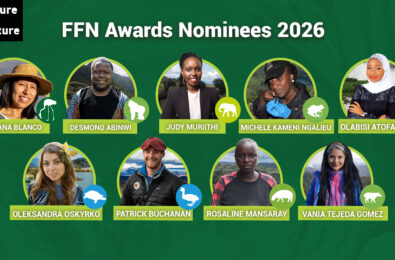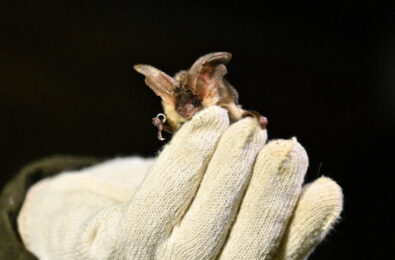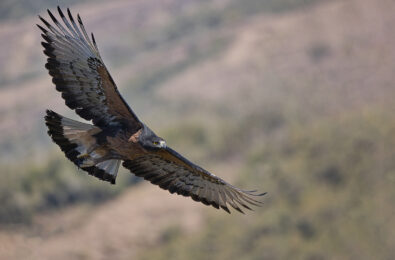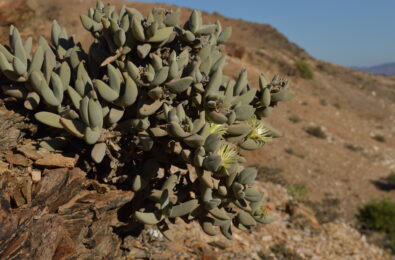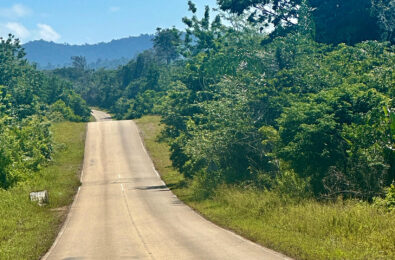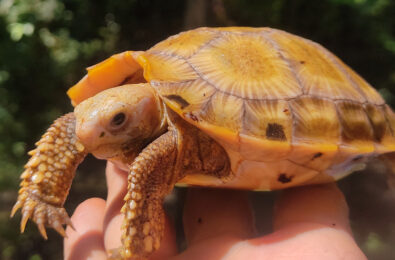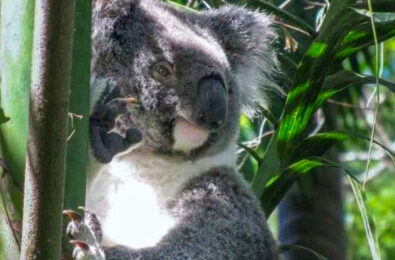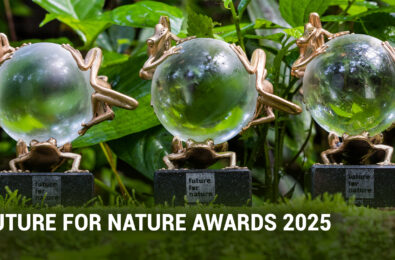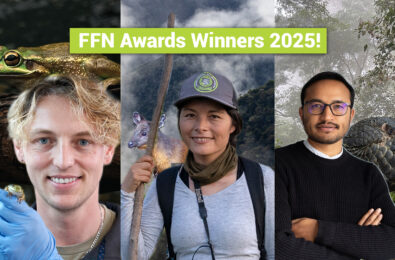Announcing the 2024 Future For Nature Award Nominees
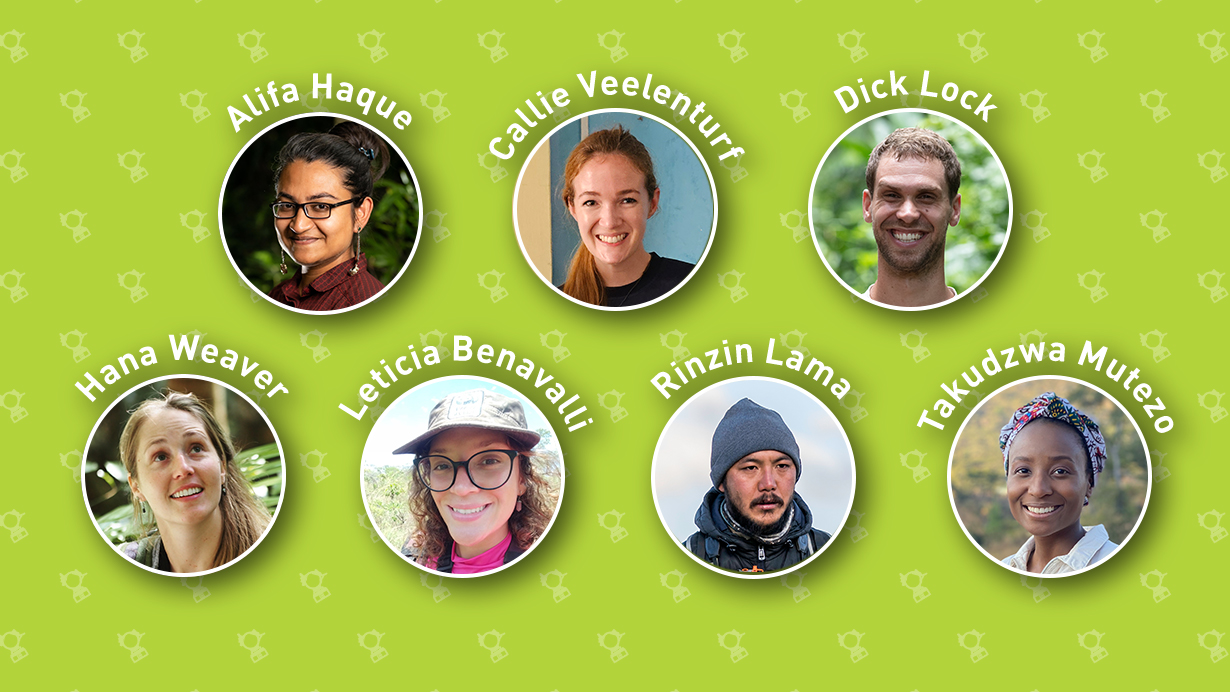
The nominees of the 2024 Future For Nature Award have been selected by our National Selection Committee. We proudly introduce the seven nominees and their inspiring conservation work:
Alifa Haque: protecting sharks and rays in the waters of Bangladesh.
Callie Veelenturf: protecting marine turtles in Panama by empowering local fishermen.
Dick Lock: saving snakes from urban environments in Suriname.
Hana Weaver: protecting the nearly extinct Puerto Rican Sharp-shinned Hawk.
Letícia Benavalli: researching and conserving jaguars and their ecosystem in Brazil.
Rinzin Lama: conserving the snow leopard in the snowy mountains of Nepal.
Takudzwa Mutezo: using the law to advocate for pangolins in Zimbabwe.

Alifa Haque
Alifa Haque is working hard to protect the sharks and rays in the waters of Bangladesh. Since the critically endangered largetooth sawfish is incorrectly believed to have cancer-curing properties, they are disappearing from the waters, along with the guitarfish. To debunk this myth and protect these endangered species, she has launched an awareness campaign to reach her target audience: fishers. She educates them and teaches them how to safely release these fish from their bycatch. Furthermore, she has created a hub for fishers to discuss and design solutions, empowering them to make sustainable changes themselves. In addition, she is helping create science clubs for disadvantaged coastal school children.
Winning the 2024 FFN Award will help Alifa navigate the challenging intersection of protecting fish in a fishery-dependent country. Her vision is to innovate sustainable fishing practices by fishers by working with appropriate incentives and ensuring locally-led species conservation. To achieve this, she must build a good relationship based on respect for the fishers and provide incentives, create an accurate dataset on sharks and rays, and design bycatch mitigation methods. Winning the award would greatly help her do so.

Callie Veelenturf
Witnessing the decline of the population of the leatherback turtle on nesting beaches first hand, Callie Veelenturf decided to dedicate her life to the protection of nature and to combat the threats facing sea turtles in the East Pacific. She started The Leatherback Project (TLP) in 2019, in an effort to conserve them and their habitat through community empowerment, research, and advocacy. One major threat facing marine turtles in the East Pacific is bycatch. Callie has found that collaborating with fishermen is key to reducing bycatch and protecting sea turtles. Because turtles tend to rip holes in the fishermen’s nets, which are costly to fix, they are very willing to participate in research initiatives and be on the frontlines of conservation efforts. This way, Callie’s work makes a difference for people and endangered wildlife.
Winning the 2024 FFN Award will help Callie map leatherback sea turtle foraging grounds in the Pearl Islands Archipelago through collaboration with local fishermen. She will also launch a fishermen network throughout the 240 islands of the Pearl Islands Archipelago called “Guardianes del Mar” or “Ocean Guardians” and provide fishermen training workshops regarding safe release tactics for sea turtles caught in fishing gear and fishing methods that have decreased bycatch of sea turtles.

Dick Lock
Dick Lock has had a passion for nature from a young age, especially amphibians and reptiles. While he was frequently in Suriname, his passion for snakes became known and soon locals went to him for help removing snakes that slithered into their homes. That resulted in him setting up the Snake Patrol Suriname Foundation (SPS), in 2020, where he assembled and trained twenty volunteers committed who catching and releasing snakes back into the wild. In addition, SPS is also working with companies to not only save snakes in residential areas but also on working grounds. Next to that, SPS educates people in Suriname on the importance of snakes in the ecosystems and that there is no need to fear them.
Winning the 2024 FFN Award will enable Dick to grow his foundation by employing a dedicated team, establish a digital platform and purchase professional working equipment. Furthermore, it would help him to gather data on snake bites and relocate snakes for future conservation activities and develop an education centre. A centre where he cannot only take care of snakes in need but also provide education on the beauty of Suriname’s natural habitat and its diverse wildlife, inspiring the people of Suriname to proactively protect it.

Hana Weaver
After the devastating hurricane, Maria struck Puerto Rico and uprooted the montane forest habitat of the Puerto Rican Sharp-shinned Hawk in 2017, they were nearly driven to extinction. With only nineteen of these birds left known in the wild, immediate action was vital. Hana Weaver took it upon herself to start hatching hawks from her own bedroom with limited rest and recourses, successfully hatching six of them. She watched them grow and develop and she learned extensively about the species’ behaviour. After choosing the ideal release site, a hawk tower and observation platform were constructed, and they were released into the wild. Six years later, she leads a team of conservationists in Puerto Rico that manage a growing wild population of the Puerto Rican Sharp-shinned Hawk.
Winning the 2024 FFN Award would help Hana and her team support ongoing recovery and conservation efforts for the Puerto Rican Sharp-shinned Hawk by carrying out year-round species-saving and community education activities. Specifically, it will provide the field team with training and important gear and equipment that is needed to successfully and safely locate, monitor, and manage as many hawks and their nests as possible. With this, her team will be more efficient and effective in the field, allowing them to expand their impact, protect more hawks, and further increase community awareness of the species.
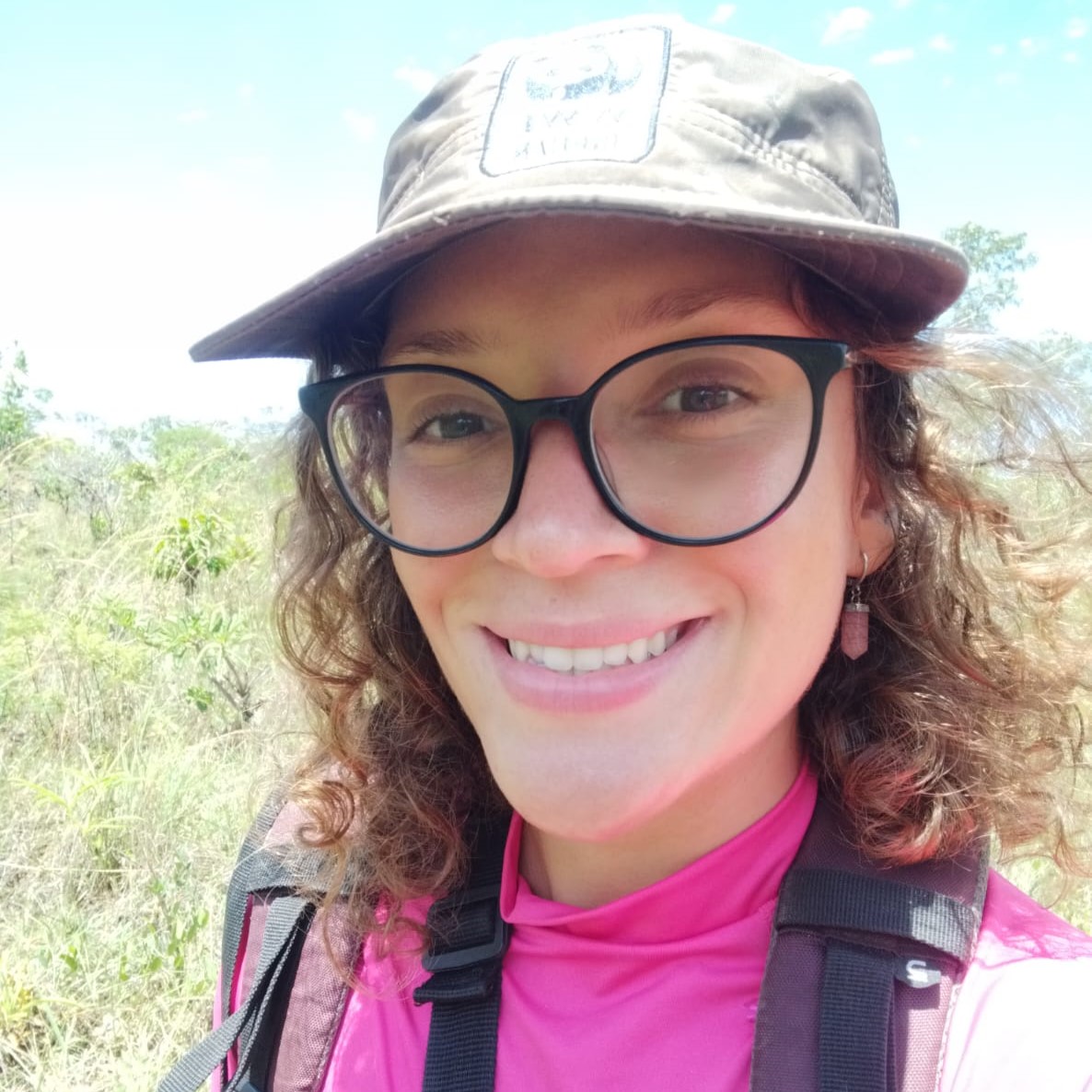
Letícia Benavalli
The jaguar is a species of immense ecological importance in Brazil. That is why Letícia Benavalli works rigorously to safeguard them and their natural environment. She managed to identify critical jaguar conservation areas susceptible to climate change, deforestation, and conflicts with humans on a national scale. These findings helped shape the National Jaguar Conservation Plan, ensuring that the government implements urgent conservation actions across these different areas. Furthermore, she pioneered the concept of recognizing farmers for their conservation efforts, issuing a jaguar-friendly farm green seal. By thorough research and public engagement, she is able to conserve the ecosystems in which the jaguars live, also benefiting the local communities and other species that live amongst them.
Winning the 2024 FFN Award will help focus Letícia’s conservation efforts on the newly discovered jaguar population and identify more priority areas in the threatened Cerrado biome. Here she will aim to tackle the human-carnivore conflict and the impact of climate change in the area by collaborating with the government, livestock owners, and local women. By connecting isolated populations of jaguars and conserving their prey as well, integrity in the ecosystem can be maintained.
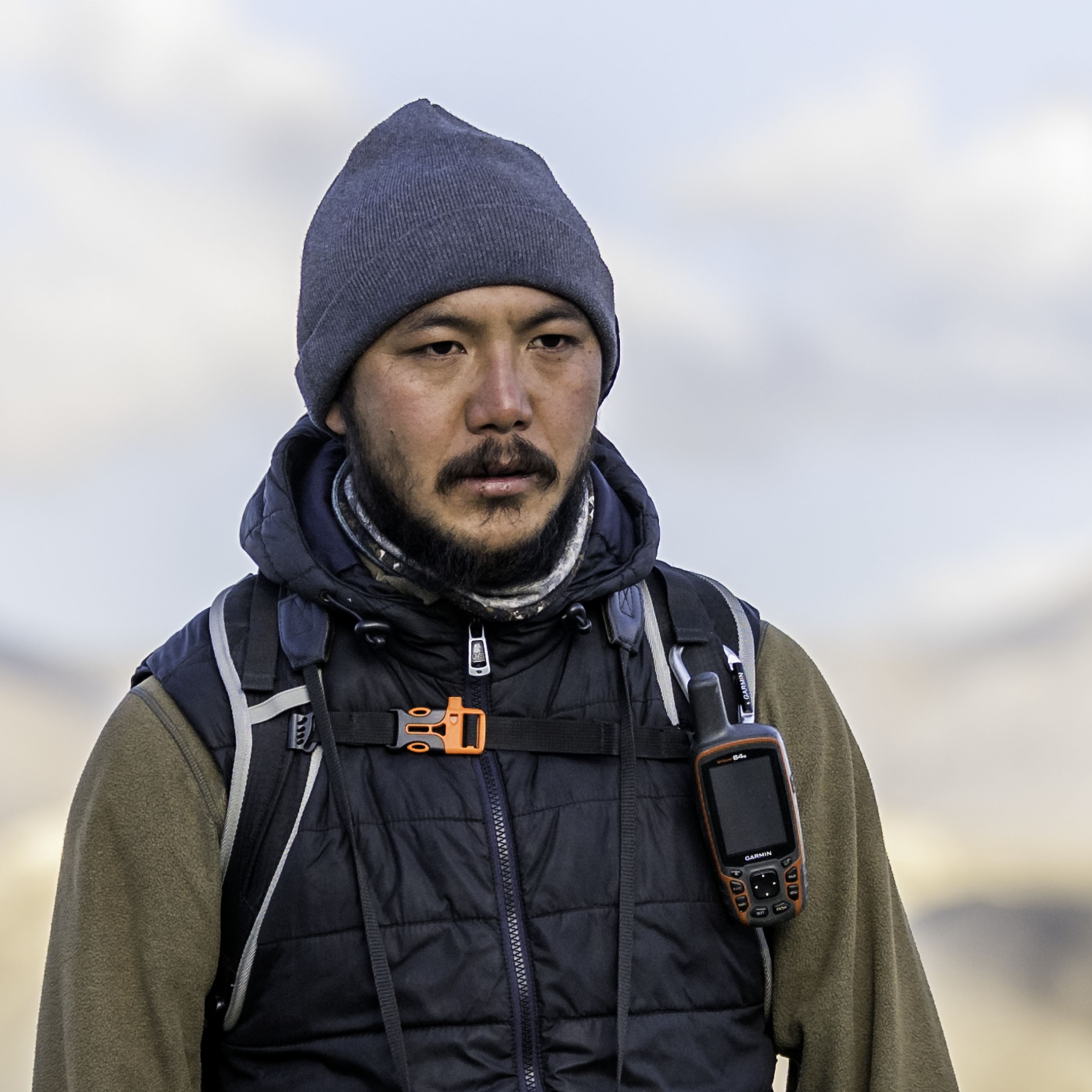
Rinzin Lama
Rinzin is the first conservationist of his region Humla, the largest non-protected area in Nepal. Back in 2014, he first started working on conserving the snow leopard. In Nepal’s highlands, people have a strong cultural connection to these animals where they are perceived as mythical creatures. Nonetheless, human-snow leopard conflicts still arise. To combat this, Rinzin founded the Upper Karnali Landscape Initiative (UKALI) intending to strengthen community-based biodiversity conservation, where they have achieved significant milestones in biodiversity documentation and conservation awareness. They have completed a survey to establish a reliable population baseline of the snow leopard and its prey. Furthermore, they are working closely with community forests, youth-led conservation groups, school-level eco clubs, and conservation activities in five rural municipalities in Humla.
Should Rinzin win the 2024 FFN Award, he would strengthen the community-based conservation efforts for the snow leopard in his mostly overlooked region, by observing the population status, spreading education and awareness, training citizen scientists, patrolling illegal activities, human-wildlife conflict mitigation, habitat improvement, and livelihood diversification. Therefore, the award would be crucial in supporting conservation initiatives aiming at population recovery of not only the snow leopards but their wild prey as well. Conserving this iconic flagship species holds great importance for other wildlife in the fragile mountain habitats.

Takudzwa Mutezo
As the first lawyer employed by a conservation non-profit in Zimbabwe, the Tikki Hywood Foundation (THF), Takudzwa Samantha Mutezo is using the law to stop and punish animal trafficking. Her main focus is on the pangolin, a sacred creature in her culture, but a wanted one in others. Using the law as her tool, Takudzwa drafted and advocated legislation for a minimum mandatory sentence of nine years for crimes against specially protected and endangered species, like pangolins. She also co-authored “The Handbook for Prosecuting Wildlife Crimes”, which has been distributed to more than 50,000 rangers, police, prosecutors, and judiciary, and developed the first virtual training alongside a mobile application that simplified wildlife law and criminal procedure. These efforts translated into a 90% conviction rate for crimes involving pangolins and transformed THF into a global leader in pangolin conservation.
Should Takudzwa win the 2024 FFN Award, she would modify, change, and advance wildlife laws to protect the pangolin by developing a Model Wildlife Code. Wildlife trafficking does not only affect the pangolins, but also other species, human livelihoods, public health, and the natural environment. The Code will regulate and contain provisions that should be included in wildlife legislation, ensuring that pangolins and other wildlife species are being protected by the law.






